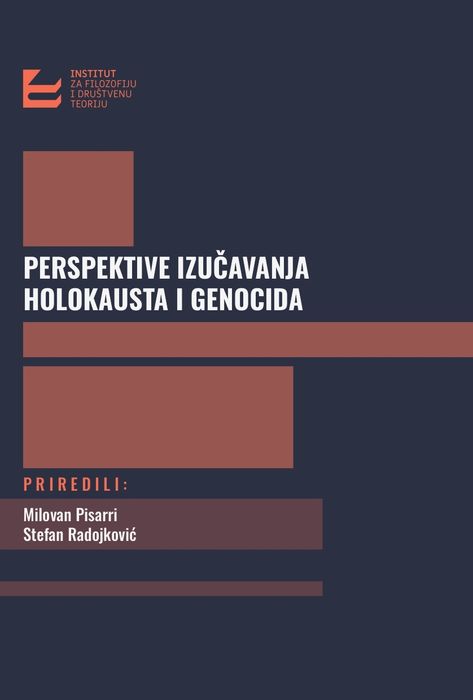(Zlo)upotreba pojma genocid
(Mis)use of the Term Genocide
Author(s): Veronika Vasilić
Subject(s): Jewish studies, Criminal Law, International Law, Human Rights and Humanitarian Law, History of the Holocaust, History of Antisemitism
Published by: Institut za filozofiju i društvenu teoriju
Keywords: genocide; definition; misuse; manipulation; Convention on the Prevention and Punishment of the Crime of Genocide; varying interpretations
Summary/Abstract: There has been extensive debate surrounding the meaning of the word genocide. Churchill described it as a "crime without a name" when referring to the monstrous atrocities committed by the Nazis - by both “ordinary” people and party leaders, during the Second World War. The term was given a name in 1944 by Raphael Lemkin, who coined genocide by combining the Greek word genos (people/nation) and the Latin verb caedo (to kill). Later, in 1948, the United Nations adopted the Convention on the Prevention and Punishment of the Crime of Genocide, which granted the term legal status - subsequently reaffirmed by the Rome Statute of the International Criminal Court. This paper explores the issue of how the term genocide is defined in international law - what it truly encompasses and what it excludes. Some of the questions addressed include: What exactly is genocide? How do we distinguish genocide from other forms of mass violence? Does a precise and unique definition of genocide even exist? Through a primarily comparative and legal analysis, the paper concludes that the current definition of genocide, while legally recognized, is susceptible to various interpretations, which have at times led to its misuse in practice.
Book: Perspektive izučavanja holokausta i genocida
- Page Range: 149-167
- Page Count: 19
- Publication Year: 2024
- Language: Serbian
- Content File-PDF

